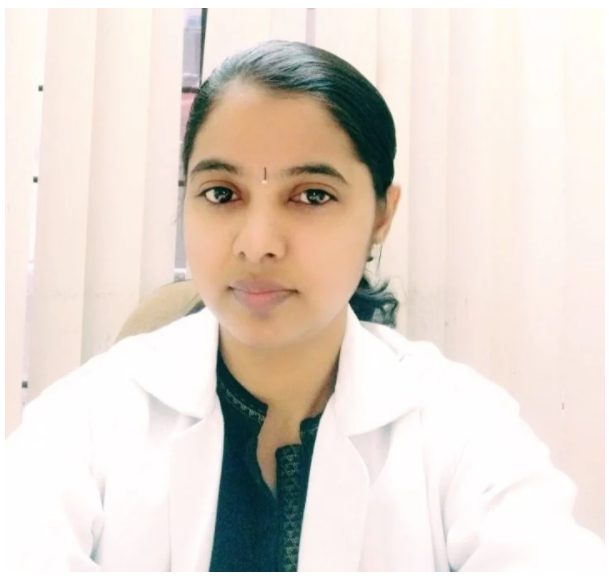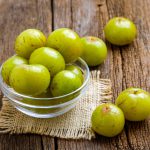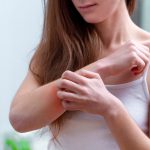Ashwagandha in Sanskrit means “smell of the horse” to correlate it with the strength of…
Read MoreHave you been noticing that you are losing more than a few strands of hair when you brush? It’s actually normal to lose around 100 hairs in a day. Typically, this hair grows back. But sometimes hair doesn’t grow back at the same rate and you experience hair loss.[1][Hair Loss](https://medlineplus.gov/hairloss.html “Hair Loss”). U.S. National Library of Medicine.
This can happen due to many reasons such as:
Now we know that hair loss can be caused by many conditions. You’ll need to adapt a suitable approach for tackling it based on why you’re experiencing hair loss.
In Ayurveda, excessive hair loss is described as khalitya. It is thought that an imbalance in pitta (which is associated with the element of fire) and vatta (associated with air and space) leads to hair loss while improper functioning of shleshma (mucous substance) and shonita (blood) stops hair from regenerating.[5]Jain, Sanchit, and Sharma Anita. “Elixir action of ayurveda in khalitya.” An International Journal of Research in AYUSH and Allied Systems ISSN (2016): 2393-9583. [6]Sharma, Shikha, Seema Puri, Taru Agarwal, and Vinita Sharma. “Diets based on Ayurvedic constitution–potential for weight management.” Alternative Therapies in Health & Medicine … Continue reading
Another term used in texts for hair fall is Indralupta. There are some differences between khalitya and indralupta.
While in khalitya, hair loss is gradual and generalised over the scalp, in indralupta hair loss is sudden and falls patch by patch. When the kapha dosha combines with rakta dhatu it results in degeneration and shutting down completely of hair follicles thus leading to baldness.
Apart from these, there are herbs that can help manage hair loss.
Traditionally, various herbs have been used to tackle hair loss, we look at the three most effective herbs:
Amla (Phyllanthus emblica ) or Indian gooseberry has been traditionally used as an ingredient in hair tonics for promoting hair growth and healthy hair. It’s considered to be great for balancing pitta dosha.[8]Kumar, Anil, Anup Singh, and Jyotsna Dora. “Essentials perspectives for Emblica officinalis.” International journal of pharmaceutical and chemical sciences 1, no. 1 (2012): 11-18.
Research indicates that it stimulates the growth of cells known as dermal papilla cells which promote hair growth. Derivatives of vitamin C and polyphenols present in amla are thought to be responsible for this effect.[9]Luanpitpong, S., U. Nimmannit, V. Pongrakhananon, and P. Chanvorachote. “Emblica (Phyllanthus emblica Linn.) fruit extract promotes proliferation in dermal papilla cells of human hair … Continue reading It has also been shown to impact hormones that can contribute to hair loss.[10]Kumar, Naphatsorn, Wandee Rungseevijitprapa, Nual-Anong Narkkhong, Maitree Suttajit, and Chaiyavat Chaiyasut. “5α-reductase inhibition and hair growth promotion of some Thai plants … Continue reading And that’s not all. One study found that boiling dried amla in water and applying the strained solution can make your hair stronger and prevent it from breaking easily. Both bleached and unbleached hair benefited from this application.[11]Tiampasook, Pratya, Chaiyavat Chaiyasut, Bhagavathi Sundaram Sivamaruthi, Thanaroat Timudom, and Duangporn Nacapunchai. “Effect of Phyllanthus emblica Linn. on tensile strength of virgin and … Continue reading
Ashwagandha (Withania somnifera) has been used extensively in Ayurveda for its many health benefits. This amazing herb is said to have anti-inflammatory, antibiotic, sedative, anti-stress, antioxidant, and hepatoprotective properties. This makes it useful for a range of inflammatory, cardiovascular, and nervous disorders.
But, can it prevent hair loss? One animal study looked at the effect of applying ashwagandha extracts in an aloe vera gel base to promote hair growth. It was found to stimulate hair growth as animals treated with the extract showed more advanced hair follicular development. The researchers suggest that the hair growth properties of this herb could be related to its phenolic compounds and antioxidant activities.[13]Pandey, Mukesh, Lokesh Adhikari, Rupali Kotiyal, Ajay Semalty, and Mona Semalty. “Research Article Preparation and Evaluation of Hair Growth Formulations of Indian Ginseng (Withania somnifera) … Continue reading Another mechanism that Ashwagandha can tackle hair loss is by helping combat stress. We all know that extreme stress can cause hair loss. Stress hormones act on dermal papilla cells and slow down hair growth.[14][How chronic stress leads to hair loss](https://news.harvard.edu/gazette/story/2021/03/researchers-discover-how-chronic-stress-leads-to-hair-loss/ “How chronic stress leads to hair loss”). The … Continue reading And research has found that taking ashwagandha extracts can reduce stress hormones and ease anxiety and stress.[15]Chandrasekhar, K., Jyoti Kapoor, and Sridhar Anishetty. “A prospective, randomized double-blind, placebo-controlled study of safety and efficacy of a high-concentration full-spectrum extract of … Continue reading
Bhringraj (Eclipta alba or Eclipta prostrata) is another herb that has traditionally been valued for its hair growth promoting properties. With cooling properties and a bitter taste, this herb is a great choice for tackling excess pitta.[17]Anne McIntyre. Herbal Treatment of Children: Western and Ayurvedic Perspectives. Elsevier Butterworth Heinemann. 2005. This ayurvedic wisdom is backed up by scientific research too. β-sitosterol, a compound present in bhringraj, is thought to contribute to its ability to combat hair loss. An animal study observed that the topical application of bhringraj cut the time taken for new hair to start growing again by half in comparison to a medicine used for hair loss. The time taken to complete hair growth was also reduced significantly.[18]Roy, R. K., Mayank Thakur, and V. K. Dixit. “Hair growth promoting activity of Eclipta alba in male albino rats.” Archives of dermatological research 300, no. 7 (2008): 357-364.
Meanwhile, another study on people in their 20s and 30s showed that bhringraj was effective at significantly increasing hair thickness. So, if you’re looking for a thick gorgeous mane this ancient remedy is a good bet.[19]Lee, Chang-Seok, Joo-A. Kang, Gyeong-yeon Kim, and Gyu-Ri Kim. “A study on the effect of Eclipta prostrata extract and MTS on the improvement of scalp health and prevention of hair loss for … Continue reading
References
| ↑1 | [Hair Loss](https://medlineplus.gov/hairloss.html “Hair Loss”). U.S. National Library of Medicine. |
|---|---|
| ↑2 | [HAIR LOSS: DIAGNOSIS AND TREATMENT](https://www.aad.org/public/diseases/hair-loss/treatment/diagnosis-treat “HAIR LOSS: DIAGNOSIS AND TREATMENT”). American Academy of Dermatology Association. |
| ↑3 | [Hair loss](https://www.mayoclinic.org/diseases-conditions/hair-loss/symptoms-causes/syc-20372926 “Hair loss”). Mayo Clinic. |
| ↑4 | [HAIR STYLING WITHOUT DAMAGE](https://www.aad.org/public/diseases/hair-loss/hair-care/styling “HAIR STYLING WITHOUT DAMAGE”). American Academy of Dermatology Association. |
| ↑5 | Jain, Sanchit, and Sharma Anita. “Elixir action of ayurveda in khalitya.” An International Journal of Research in AYUSH and Allied Systems ISSN (2016): 2393-9583. |
| ↑6 | Sharma, Shikha, Seema Puri, Taru Agarwal, and Vinita Sharma. “Diets based on Ayurvedic constitution–potential for weight management.” Alternative Therapies in Health & Medicine 15, no. 1 (2009): 44. |
| ↑7 | Purwar P, Yadav SS, Gangele P. Khalitya (hair fall) management – ayurvedic perspective. Int J Health Sci Res. 2019; 9(4):255-260 |
| ↑8, ↑12 | Kumar, Anil, Anup Singh, and Jyotsna Dora. “Essentials perspectives for Emblica officinalis.” International journal of pharmaceutical and chemical sciences 1, no. 1 (2012): 11-18. |
| ↑9 | Luanpitpong, S., U. Nimmannit, V. Pongrakhananon, and P. Chanvorachote. “Emblica (Phyllanthus emblica Linn.) fruit extract promotes proliferation in dermal papilla cells of human hair follicle.” Research Journal of Medicinal Plant 5, no. 1 (2011): 95-100. |
| ↑10 | Kumar, Naphatsorn, Wandee Rungseevijitprapa, Nual-Anong Narkkhong, Maitree Suttajit, and Chaiyavat Chaiyasut. “5α-reductase inhibition and hair growth promotion of some Thai plants traditionally used for hair treatment.” Journal of ethnopharmacology 139, no. 3 (2012): 765-771. |
| ↑11 | Tiampasook, Pratya, Chaiyavat Chaiyasut, Bhagavathi Sundaram Sivamaruthi, Thanaroat Timudom, and Duangporn Nacapunchai. “Effect of Phyllanthus emblica Linn. on tensile strength of virgin and bleached hairs.” Applied Sciences 10, no. 18 (2020): 6305. |
| ↑13 | Pandey, Mukesh, Lokesh Adhikari, Rupali Kotiyal, Ajay Semalty, and Mona Semalty. “Research Article Preparation and Evaluation of Hair Growth Formulations of Indian Ginseng (Withania somnifera) for Alopecia.” (2019). |
| ↑14 | [How chronic stress leads to hair loss](https://news.harvard.edu/gazette/story/2021/03/researchers-discover-how-chronic-stress-leads-to-hair-loss/ “How chronic stress leads to hair loss”). The Harvard Gazette. |
| ↑15 | Chandrasekhar, K., Jyoti Kapoor, and Sridhar Anishetty. “A prospective, randomized double-blind, placebo-controlled study of safety and efficacy of a high-concentration full-spectrum extract of ashwagandha root in reducing stress and anxiety in adults.” Indian journal of psychological medicine 34, no. 3 (2012): 255-262. |
| ↑16 | [Ashwagandha](https://www.mskcc.org/cancer-care/integrative-medicine/herbs/ashwagandha “Ashwagandha”). Memorial Sloan Kettering Cancer Center. |
| ↑17 | Anne McIntyre. Herbal Treatment of Children: Western and Ayurvedic Perspectives. Elsevier Butterworth Heinemann. 2005. |
| ↑18 | Roy, R. K., Mayank Thakur, and V. K. Dixit. “Hair growth promoting activity of Eclipta alba in male albino rats.” Archives of dermatological research 300, no. 7 (2008): 357-364. |
| ↑19 | Lee, Chang-Seok, Joo-A. Kang, Gyeong-yeon Kim, and Gyu-Ri Kim. “A study on the effect of Eclipta prostrata extract and MTS on the improvement of scalp health and prevention of hair loss for workers in their 20s and 30s.” Medico Legal Update 20, no. 1 (2020): 1850-1856. |
| ↑20 | [The Health Benefits of Bhringraj Oil](https://www.verywellhealth.com/the-benefits-of-bhringaraj-oil-88825 “The Health Benefits of Bhringraj Oil”). Verywell Health. |


Dr. Manjula has 12 years of experience in the field of Ayurveda and worked as a Consultant and General Physician for over 5 years before starting her private practice. In addition to BAMS, she also has an Advanced Diploma in Clinical Research and is trained in Panchkarma. She is an expert at diagnosis of the root cause and planning effective treatment for multiple issues.

Ashwagandha in Sanskrit means “smell of the horse” to correlate it with the strength of…
Read More
Pimples - we’ve all had them and we all hate them. And if you’ve ever…
Read More
Don’t all of us want healthy glowing skin? And while there is a ton of…
Read More
Most of us have experienced skin irritations at some point or the other. When the…
Read More